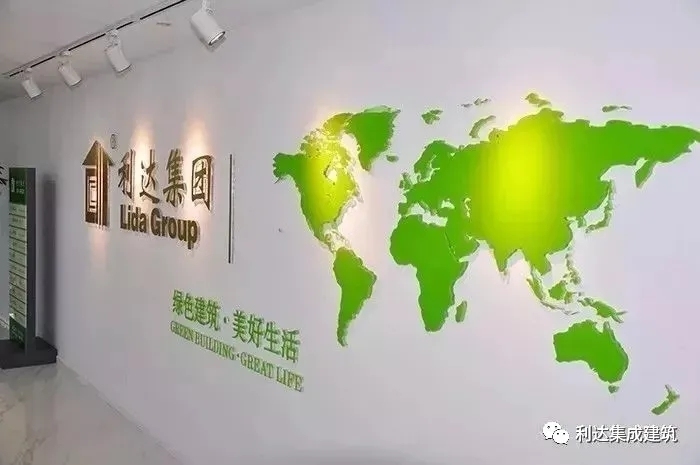As the world grapples with climate change, globalization, and rapid urbanization, the construction sector faces mounting pressure to reduce environmental impact while increasing quality of living. For those involved in temporary and emergency housing, developing future-proof solutions becomes even more imperative. Leader in prefabricated accommodation solutions Lida Group is rising to these challenges through an ambitious innovation roadmap focusing on sustainability, future adaptability, connectivity, and occupant well-being.
Optimizing Existing Infrastructure for Sustainability
Most temporary housing solutions today ultimately end up as waste. Through research partnerships with leading universities, Lida Group is developing advanced techniques to design for disassembly, reuse, and upgrading of existing villages and units. Modular, standardized components allow separation and repurposing of materials like frames, siding and interiors for renewal. Initial pilots demonstrate 95% waste diversion potential.
Via software, components will soon track usage history, enabling predictive maintenance and component swapping as deterioration occurs. Coupled with structural condition monitoring sensors, this ensures optimal performance over decades of reuse through relocation, repurposing or upgrading. Standardization also future-proofs units, allowing periodic component or system swaps keeping infrastructure contemporary. For example, PV panels or building envelopes can upgrade every 10-15 years leveraging continual efficiency gains. Together these innovations maximize housing asset lifecycles, sustainability and affordability through adaptability.

Harnessing On-Site Renewables via Smart Microgrid Integration
Temporary housing sites today rely on diesel generation, but Lida Group is implementing innovative on-site renewable microgrids providing clean, affordable power. Initial net-zero energy villages pair PV, wind, batteries and hydrogen fuel cell backup for continuous supply. Software coordinates generation and storage, optimizing consumption based on weather, demand patterns and unit efficiencies. Excess power feeds neighboring villages or local grids.
Future projects integrate holistic renewables like ground-source heat pumps converting ambient temperatures into heating and cooling. Real-time monitoring and controls will enable predictive performance optimization, remote operation via cellular connections, and integration with energy management systems as buildings and villages evolve. Aggregated demand-shifting also supports grid stability, providing income generation potential for homeowners or facility managers.
Promoting Connectivity, Shared Resources and Collaboration
Lida Group envisions temporary housing accelerating sustainable communities through shared infrastructure and collective living. Units now incorporate coworking areas, e-learning/telehealth hubs and IoT-linked smart home technologies. Over time, temporary villages will transform into tech-empowered shared social spaces facilitating remote work, education, health and recreation.
Communal services like gardens, childcare and elderly care maximize resource pooling. 5G-ready buildings enable telepresence access to services from surrounding towns. Broader initiatives include mobile recycling centers and repair shops boosting local circular economies. Research partnerships even explore developing temporary housing clusters into sustainable agrihoods supporting nearby communities through shared food production and community development initiatives.
Prioritizing Health, Happiness and Social Inclusion
With an aging global population, future proofing will focus on accessibility, wellness, social connectivity and age-friendly designs. All Lida Group facilities now incorporate universal design principles like step-free access and ergonomic fixtures. Developments trial multi-generational housing encouraging community ties across ages.
Biophilic elements like indoor plants, daylighting and nature views boost mental health. Communal wellness centers provide exercise areas, outdoor farming and social interaction hubs counteracting isolation especially for seniors. Integrated telehealth and assistive living tech enable independent living with remote care support. To quantify well-being impacts, projects now partner with social innovators measuring happiness indicators, social capital and quality of life outcomes over time.

Pioneering Collaborative R&D Efforts Driving Future Innovation
Transforming the industry requires proactive partnership between governments, NGOs, technology pioneers and communities. Under its newly formed Sustainable Development Council, Lida Group spearheads open-innovation collaborations pairing temporary housing expertise with leaders in design, engineering, health and digital technologies. Cross-disciplinary hackathons recently yielded proofs of concept for assistive smart homes, renewable microgrids incorporating AI predictive controls and innovations accelerating UN Sustainable Development Goals.
A recent research initiative launched with Massachusetts Institute of Technology aims developing the world’s most sustainable, disaster-resilient and community-supportive modular homes and villages. Outcomes will inform prefabrication standards supporting diverse geographies and climate risks, promote affordability via modular upgrading and shared amenities, measure health outcomes, and suggest policy frameworks enabling sustainability at broader scales. These collaborative R&D accelerators will prepare temporary housing as a driver of productive, livable and climate-resilient futures worldwide.
In Summary
Temporary housing represents a significant yet often overlooked opportunity for sustainability given its global scale and rapidly evolving needs. Visionary companies like Lida Group are rising to meet this challenge through pioneering innovation prioritizing reusability, renewable energy self-sufficiency, connectivity, well-being and community. Strategic research partnerships develop the underpinnings for a paradigm shift – transforming temporary structures into regenerative, technology-empowered assets supporting sustainable development far beyond initial deployments. If successful, such efforts may establish temporary and flexible housing standards supporting diverse but pressing global needs, from refugee crises to natural disasters and urbanization, with minimized environmental footprint but maximized social benefits for all.

Related news
-
Leveraging Standardization and Mass Production Techniques, Lida Group Builds High-Quality Prefabricated Housing Solutions at Scale for Workforces On-The-Go
2023-10-26 15:04:03
-
Exploring How Lida Group Is Making Container Home and Labor Camp Construction Greener and More Sustainable Through Careful Material Selection, Design Strategies and On-Site Processes
2023-10-26 10:55:30
-
Designing Container Homes and Prefabricated Accommodation Units for Labor Camp Projects Presented Unique Challenges That Were Met With flying Colors by Lida Group
2023-10-25 16:44:10
contact us
- Tel: +86-532-88966982
- Whatsapp: +86-13793209022
- E-mail: sales@lidajituan.com


